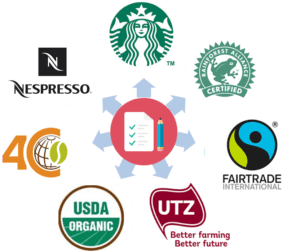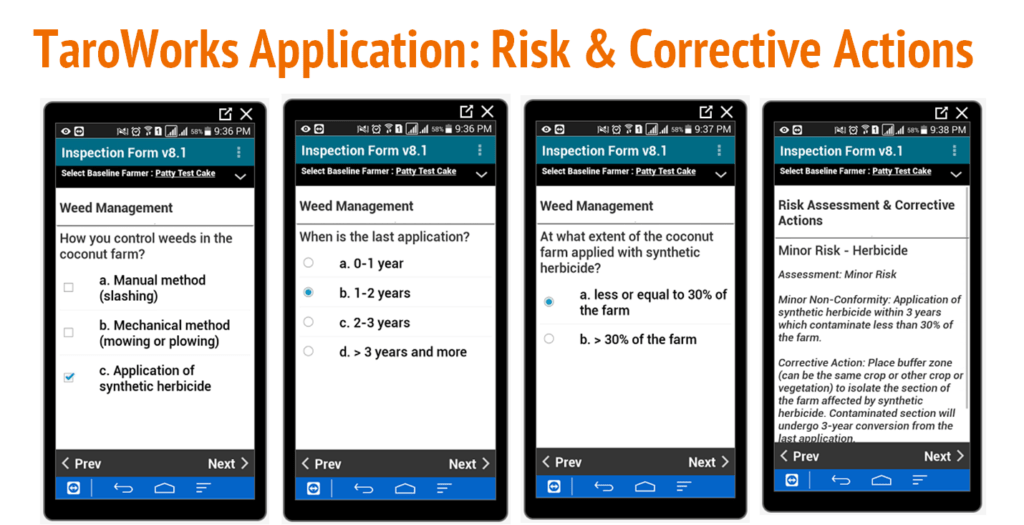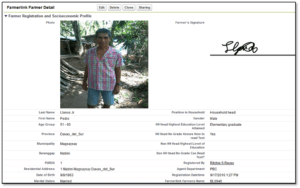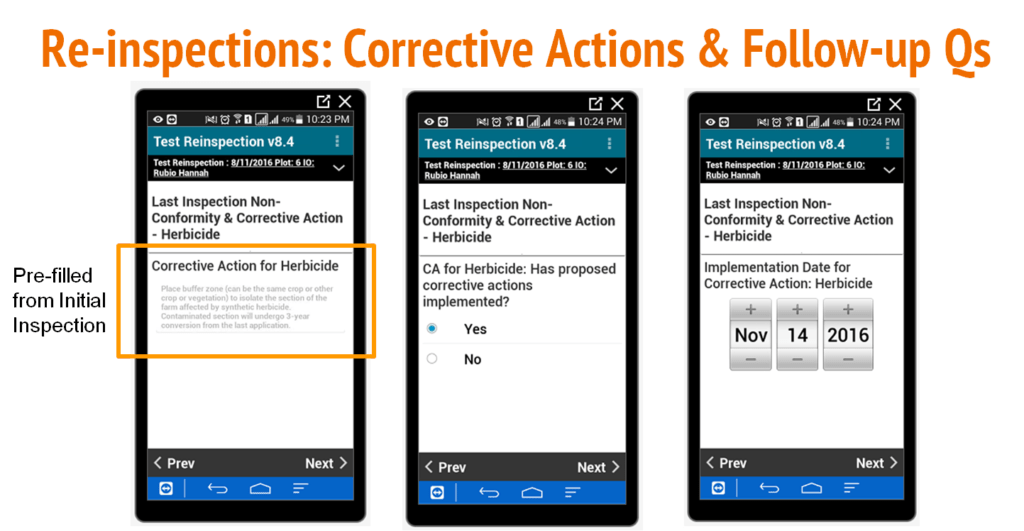
Search
Big thanks to Hannah Rubio and Carlos Ardila, developers for Grameen Foundation‘s mAgriculture programs for sharing how they are using TaroWorks on mobile devices and the Salesforce.com cloud database tools to support farm certification, so farmers have better access to marketplaces and can boost their income. Read our recap below, or watch the video for the full webinar.
Carlos revealed how 70% of coffee growers in the Latin American region live well below their region’s national poverty line. The Grameen Foundation mAgriculture programs work to increase farmers’ income by providing certification as a way for them to become more connected to the value chain and remain compliant with sustainability and quality assurance standards. Their programs envision building resilience among smallholder farming households to benefit their community as a whole. The programs coordinate different stakeholders in the certification process, including co-operative partners, farmers, and the certifying bodies.
To be compliant, farmers have to adhere to a set process or production criteria established by each certifying organization. Here are a few that Grameen Foundation’s programs certify.

These certifications not only offer an authority to trade, but also premiums or other forms of assistance from the certifying body. This allows farmers to have expanded access to the local or global marketplace and set better prices. Grameen Foundation focuses on four key components in the certification application process:
The Latin America coffee projects work with farmers over time to develop farm management plans that allow them to raise their crop quality, access training and structure investments over time, which makes them more likely to meet certification standards such as Starbucks C.A.F.E. Practices and Fairtrade Coffee Certifications.
To support farmers in achieving and maintaining this certification, these programs need to gather data in a timely, cost-effective manner. This allows everyone from field staff to managers at the head office to facilitate compliance and diagnose different levels of the process. Mobile technology is a core element in making this a reality. Hannah shared how the FarmerLink program goes through the certification process digitally.

FarmerLink connects coconut farmers in the Philippines with a vast range of services, certifications and information that help them strengthen and grow their businesses. Prior to implementing TaroWorks, the FarmerLink inspection officers used paper forms to log farmer data and then encode it before sending it off to the head office to get corrective actions. Not only did this cause a delay between inspection and results, but it was also subjective, due to being dependent on the judgment of the inspection officer. By switching to mobile, FarmerLink inspection officers can log their observations for each area, and have the observations results trigger a tailored Risk Assessment (major risk, minor risk, or no risk) and suggested corrective actions.
In Salesforce, supervisors can see instantly summarized results in dashboards, and they can view information for the individual farmer, and each of their farms.

The next time inspection officers visit the farm for re-inspection, they can pull up the previous inspection’s information and ask follow-up questions related to each Corrective Action.

Both Carlos and Hannah explained how their teams use TaroWorks data collection tools along with various evaluation methods, monitoring techniques and re-inspection routines to help farmers certify their produce worldwide. For example, with TaroWorks, FarmerLink users are able to digitize the organic certification process, beginning with organic inspection and re-inspection tasks. Users can create farmer profiles, create formulas for corresponding corrective actions, construct TaroWorks surveys and much more. These features make data collection easier, accessible and accurate.
The systems built for Latin American coffee projects incorporate multiple certifications (shown in the diagram above) in one. Each certification system has their own requirements, but Grameen Foundation finds the similar aspects of each one in order to design the surveys. For example, a question related to hiring underage workers applies to C.A.F.E. Practices, Utz, Fair Trade FLO, Rainforest Alliance, and 4C. Grameen Foundation works with agronomic specialists so each question is evaluated for how it meets each certification.
With the results, co-operatives can assess how close farmers are to which certifications, and start to work together to reach that goal.
The FarmerLink program recently completed field testing with TaroWorks and expects to roll out this process to 450 farmers by April. Hannah said so far, the results are positive, with FarmerLink agents doubling their productivity levels. As the program’s previous re-inspection process was entirely manual, users anticipate significant efficiency gains as well. TaroWorks has also made it easier to make data corrections in draft form, get feedback quickly, do field testing as early as possible and be consistent with naming fields.
To learn more about how your organization can digitize its farm certification process, watch the video above or speak with a dedicated TaroWorks representative today!
POST TOPICS
Sign up to receive emails with TaroWorks news, industry trends and best practices.
TaroWorks, a Grameen Foundation company.
Site by V+V